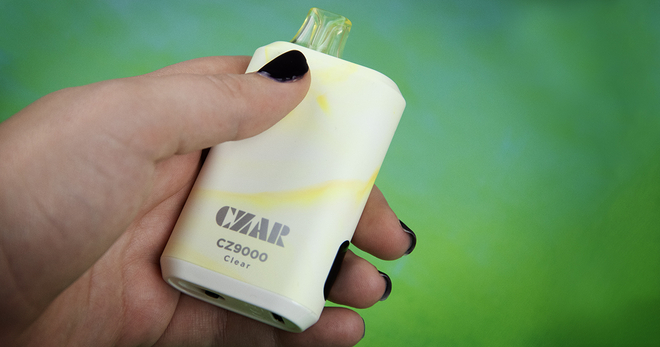How the tobacco industry’s new products could be leading to more nicotine addiction
Faced with declines in cigarette use – the youth smoking rate dropped from nearly 23% in 2000 to an all-time low of 2.3% in 2021 – the tobacco industry has expanded its product offerings to include flashy e-cigarettes, flavored nicotine-containing products such as oral nicotine pouches and lozenges, and the heated tobacco device IQOS, dramatically changing the product landscape. Companies have also begun to manufacture products with synthetic nicotine – nicotine created in a laboratory and not derived from tobacco – and market those products as “tobacco-free,” a claim that could imply lower-risk.
Youth nicotine use in any form is unsafe. Nicotine is harmful to developing brains – young nicotine users are more likely to become addicted, have more difficulty quitting, and may be at higher risk for addiction to other substances in the future.
Public health leaders and researchers joined Truth Initiative to discuss the proliferation of new tobacco products that threaten to reverse years of progress made toward ending nicotine addiction. “Nicotine Nation: How the Tobacco Industry May Be Addicting a New Generation and Keeping Americans Hooked,” the latest Truth Initiative Impact Series, included Truth Initiative CEO and President Robin Koval, Associate Vice Chancellor for Research at the University of Illinois Chicago Dr. Jonathan D. Klein, and Director of the National Institute on Drug Abuse Dr. Nora D. Volkow. Lauren Etter, an investigative reporter for Bloomberg News and the author of The Devil’s Playbook: Big Tobacco, Juul, and the Addiction of a New Generation, moderated.
Proliferation of non-combustible tobacco products
The tobacco industry has mounted a campaign to try to transform its image with non-combustible tobacco products and claims that it can be part of the “public health solution” to end smoking. With new products like e-cigarettes, heated tobacco devices, and oral nicotine products the tobacco industry is attempting to position itself as working alongside public health while aggressively growing its market base among youth and young adults. Companies have also switched to synthetic nicotine to exploit a former regulatory loophole and keep selling the types of sweet and fruity flavored products that helped ignite the youth vaping epidemic that continues today.
“Nicotine is nicotine, so whether you add it from the plant or you do it synthetically, it’s exactly the same chemical structure and you are going to be having the same pharmacological effects,” said Dr. Volkow.
Many of these newer products contain high nicotine concentrations, which is not restricted in the U.S. For example, nicotine levels in some e-cigarettes match or exceed levels found in combustible cigarettes. A study by Truth Initiative and the Centers for Disease Control and Prevention found that the average nicotine concentration in e-cigarettes sold in U.S. retailers more than doubled from 2013 to 2018.
The tobacco industry also continues to cultivate influence with the general public, thought leaders, the scientific community and policy makers, lobbying against policies that strengthen tobacco control efforts, seeking publication in scientific journals and running million-dollar “advertorial” content campaigns across national media outlets aimed to influence the public about the health dangers of its products.
Need for harm reduction
The experts discussed how the tobacco industry has defended e-cigarettes and seized upon the term “harm reduction” – the proven public health strategy of providing evidence-based, lower harm alternatives for those who do not quit harmful substances – as a proxy for a vision of a lightly regulated market in nicotine products that provides for continued and robust growth of nicotine as a commercial product. Truth Initiative forcefully rejects that notion and believes that a genuine harm reduction approach requires a measured and careful deployment of nicotine alternatives that are designed and promoted with controls to ensure they are not attractive to non-users prior to introduction into the market.
Despite it being well-established that flavors play a significant role in enticing youth and young adults to try and use tobacco products, many open system and disposable e-cigarettes come in an array of candy, fruit, dessert and cocktail flavors, such as sour apple, cherry, grape, chocolate, strawberry margarita, appletini, pina colada, cotton candy, and cinnamon roll.
“There’s absolutely no reason to market flavors to teenagers if your goal is to provide alternative or safer products to adults who are addicted smokers,” said Dr. Klein.
Nicotine and mental health
In addition to the negative physical health effects of tobacco, nicotine can negatively affect mental health. A body of peer-reviewed research highlights how nicotine can worsen anxiety symptoms and can intensify feelings of depression. The prevalence of depression and anxiety symptoms has doubled among youth during the COVID-19 pandemic, a JAMA study shows, and the National Youth Tobacco Survey reports that 1.7 million high schoolers vape and more than 43% of those who vape do so 20-30 days per month. A Truth Initiative survey also shows that 4 in 5 young people who had vaped said they started vaping to lessen their stress, anxiety, or depression.
“During our nation’s worsening youth mental health crisis, the thing many young people have turned to because they believe it will alleviate their symptoms can actually make them worse,” said Koval, giving the reasoning behind the latest youth e-cigarette education campaign from truth.
It’s Messing with Our Heads exposed nicotine’s role as a contributor to the worsening youth mental health crisis through the launch of a fake vaping company called Depression Stick! Breath of Stress Air is an effort that expands on It’s Messing with Our Heads, debunking the marketing of e-cigarettes as stress relievers and calling out the tobacco industry for selling vaping as a way to deal with stress, especially during the COVID-19 pandemic.
Truth Initiative’s Impact Series
The Truth Initiative Impact Series is a robust, recurring event that brings together key stakeholders and experts to engage in thought-provoking conversations about ways we can innovate and inspire action to achieve a culture where young people reject smoking, vaping, and nicotine. The goal of this thought leadership series is to convene diverse partners in tobacco control and other public health organizations, parents, teachers, and policy makers who can benefit from Truth Initiative’s work.
In case you missed it, watch our previous Impact Series events: “Vaping: Know the Truth – Empowering Students with the Facts on E-cigarettes & Tools to Quit,” “Thrive: A Youth Mental-Health Summit,” “Unvaping America’s Youth,” and “Not Buying It: The Tobacco Industry’s Rebrand.”
More in emerging tobacco products
Want support quitting? Join EX Program
By clicking JOIN, you agree to the Terms, Text Message Terms and Privacy Policy.
Msg&Data rates may apply; msgs are automated.


